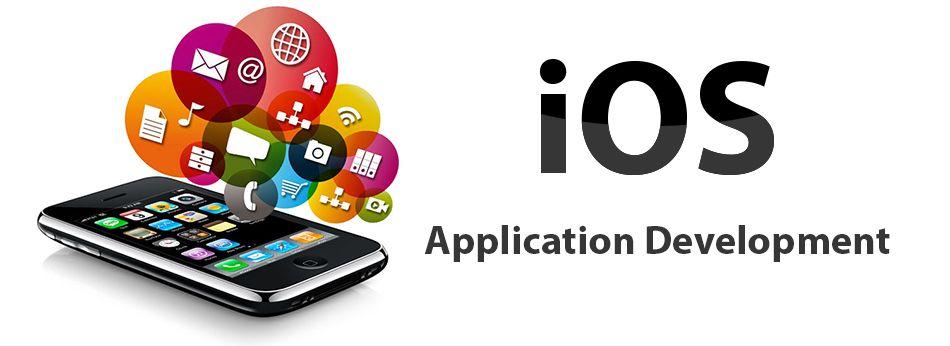Introduction to iOS Mobile App Development
The digital landscape is evolving faster than ever, and Apple continues to lead the charge. iOS mobile app development is not just about creating software—it’s about designing experiences that people love to use. In 2025, building an iOS app means tapping into a world of innovation, performance, and unmatched brand value.
What Is iOS App Development?
iOS app development is the process of creating mobile applications that run on Apple devices like the iPhone, iPad, and Apple Watch. Developers use programming languages such as Swift or Objective-C within Apple’s integrated environment to deliver secure, powerful, and user-centric apps.
Why Focus on iOS Development in 2025?
In 2025, Apple dominates the premium smartphone market. Businesses are increasingly prioritizing iOS app development because iPhone users tend to spend more, engage longer, and stay loyal to their apps. Moreover, the ecosystem’s security and stability make iOS a reliable platform for long-term growth.
Benefits of Building an iOS App
1. Enhanced Security
Apple’s strict policies ensure that apps on iOS maintain top-notch data privacy and protection. End-to-end encryption, sandboxing, and app review protocols make iOS one of the safest platforms for users and businesses alike.
2. Loyal User Base
iOS users are known for their loyalty. Once they find an app that works well, they tend to stick with it, which is why retention rates on iOS are consistently higher than on Android.
3. High ROI and Monetization
Though iOS users make up a smaller portion of global smartphone users, they account for the majority of app store revenue. Paid apps, subscriptions, and in-app purchases perform significantly better on iOS.
4. Smooth User Experience
Apple’s seamless hardware-software integration ensures that apps run smoothly with fewer crashes, better speed, and stunning visuals.
The iOS Ecosystem: A Developer’s Playground
From iPhones and iPads to the Apple Watch, Apple TV, and Vision Pro, the iOS ecosystem is vast. Developers can create interconnected experiences where one app interacts across multiple Apple devices, making user engagement more powerful than ever.
Best Programming Languages for iOS Apps
Swift
Swift is Apple’s preferred programming language—fast, safe, and easy to learn. It’s designed for modern app development and works seamlessly with Apple frameworks.
Objective-C
Before Swift, Objective-C was the primary language for iOS. It’s still used in many legacy applications and remains important for maintaining older projects.
Essential Tools for iOS Developers
Xcode
Xcode is the all-in-one IDE for iOS developers. It includes everything from code editors to simulators, debugging tools, and testing environments.
TestFlight
This Apple tool helps developers test beta versions of their apps with real users before official release.
Swift Playgrounds
A fun and interactive way for beginners to learn coding in Swift—perfect for those just entering the world of iOS development.
Step-by-Step iOS App Development Process
1. Research and Planning
Every successful app starts with a strong idea. Define your goals, target audience, and core features before development begins.
2. Designing the UI/UX
Apple values design as much as functionality. Your app’s interface should be simple, elegant, and user-friendly, following Apple’s Human Interface Guidelines.
3. Development Phase
Developers use Swift or Objective-C in Xcode to write the app’s frontend and backend. Integration with APIs and third-party services is also done here.
4. Testing and Quality Assurance
Thorough testing ensures bug-free, secure, and smooth performance across all iOS devices.
5. Launching on the App Store
Before publishing, your app must pass Apple’s review. Once approved, you can promote it using ASO (App Store Optimization) techniques.
Following Apple’s Human Interface Guidelines
Apple’s design principles emphasize clarity, depth, and deference. Sticking to these guidelines helps your app feel native, intuitive, and premium.
Must-Have Features in Modern iOS Apps
-
Dark Mode Compatibility
-
Face ID and Touch ID Authentication
-
Push Notifications
-
Offline Functionality
-
Cloud Synchronization (iCloud)
-
AI-Powered Personalization
Common Challenges in iOS App Development
Developers often face strict App Store policies, high design standards, and the need for consistent updates to stay compatible with the latest iOS versions.
Choosing the Right iOS Development Team
Whether you hire freelancers or a professional agency, look for experience, design expertise, and strong post-launch support. Check portfolios, client reviews, and app store listings before committing.
Cost of Developing an iOS App in 2025
The cost depends on complexity, features, and developer rates. On average, small apps cost between $20,000–$50,000, while enterprise-grade apps can exceed $150,000.
Top Trends Revolutionizing iOS Development
1. Artificial Intelligence
AI powers smarter apps—from predictive text to virtual assistants and automation tools.
2. AR/VR and Spatial Computing
Apple’s Vision Pro is pushing developers to create immersive AR and VR experiences.
3. 5G-Powered Experiences
Lightning-fast 5G enables real-time streaming, gaming, and cloud-based processing.
4. App Clips and Widgets
Mini-apps and widgets improve user engagement without requiring a full download.
Monetization Strategies That Work
-
In-App Purchases
-
Subscription Models
-
Paid Apps
-
Affiliate Marketing
-
In-App Ads (Strategically Used)
Pro Tips for a Successful App Store Launch
-
Optimize your app title and description for ASO
-
Create an engaging app preview video
-
Encourage early reviews and ratings
-
Run social media campaigns
-
Monitor analytics post-launch for improvements
Conclusion
iOS mobile app development is more than coding—it’s about creating digital experiences that resonate with users. In 2025, the combination of cutting-edge technology, superior design, and Apple’s robust ecosystem makes iOS the perfect platform for brands looking to stand out. Whether you’re building your first app or your fiftieth, mastering iOS development is your gateway to App Store success.






